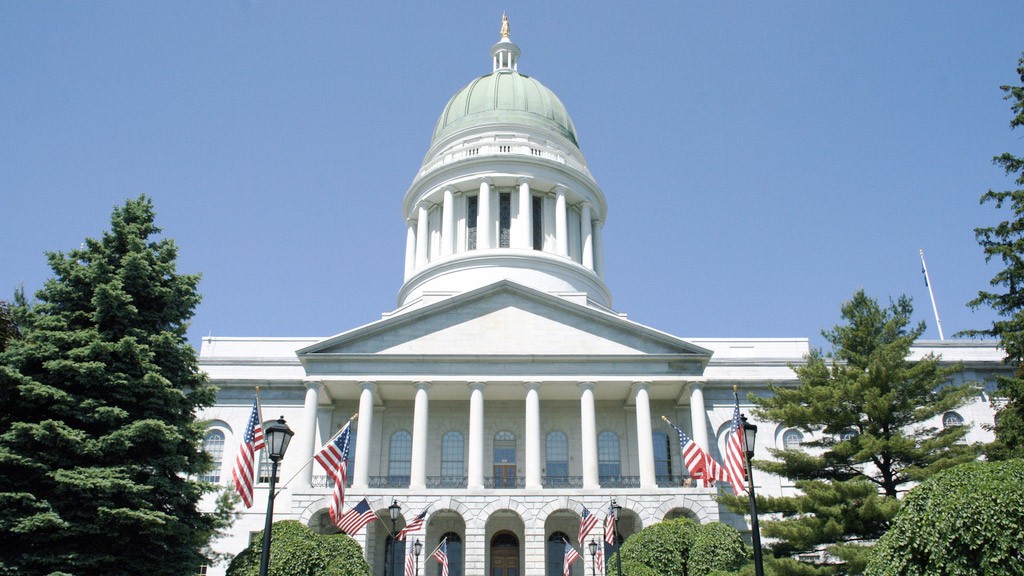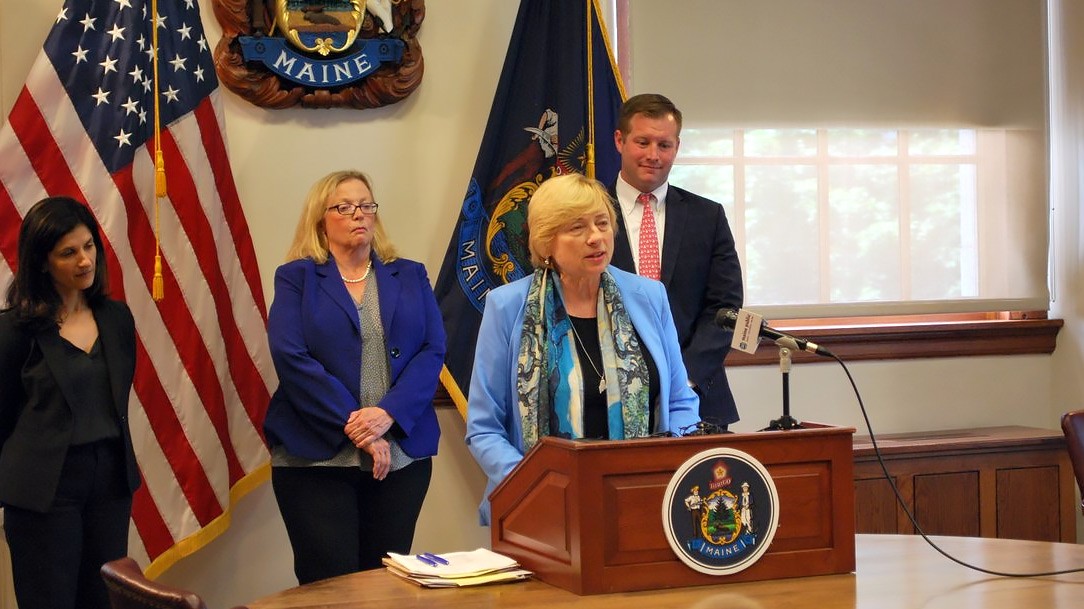Sports betting is now legal in Maine. Gov. Janet Mills has signed bill LD 585 into law, which allows retail and mobile sportsbook operations in the Pine Tree State. The legalization comes after Mills vetoed a bill in early 2020, which made fans believe this time would never come. The new market provides tribes in the state with exclusive control over the online segment.
“This law provides meaningful economic opportunities for the Wabanaki Nations. It incentivizes investment in Tribal communities, and it formalizes a collaboration process on policy that sets the foundation for a stronger relationship in the future,” Mills said in a statement.
Good news for those seeking to bet during the next NFL season. Legislation in Maine is effective 90 days after the session ends, which concluded on April 25. Sports betting could potentially launch in late July or early August, meaning the state would not miss on revenue from the country’s most profitable sport for gaming.
In addition to granting tribes sole control over mobile sports betting, the bill signed into law on Monday reduces the tribal tax burden and creates a framework for greater collaboration between tribes and the state. The proposal cleared the Senate in late April, on a 23-11 vote.

While the law is a significant state forward, and was touted by Mills as the most significant tribal bill in decades, the Gov. opted not to back a separate proposal that would have provided far-reaching sovereignty for Maine tribes. Thus, while the passage of the sports bill was celebrated by tribal nations, it is not seen as a replacement for the long-sought sweeping sovereignty measure.
“Permanent sovereignty restoration remains the legislative priority for the Wabanaki Nations, and it will continue to be our priority moving forward,” the tribal chiefs said last week in a statement, confirming the sports betting legislation is a bittersweet win for them.
The new law permits the Penobscot, Passamaquoddy and Maliseet -the state’s three federally recognized tribes- to get mobile sports betting licenses, which can then choose to build their own book product, or sign an agreement with B2C operators such as DraftKings or FanDuel. Mobile betting is estimated to comprise 85% of the total market.
In terms of retail, there are 10 retail licenses available for casinos, horse tracks and off-track betting facilities operating in the state. An original version of the bill would have shut casinos –Hollywood Casino in Bangor and Oxford Casino– out of the market altogether, which led to their opposition.

Sports betting in Maine will be taxed at 10%, but it won’t be levied on gross revenue: operators can deduct both federal excise tax payments and promotions. In terms of licensing fees, a four-year mobile license costs a relatively low $200,000, while a retail license -also running for four years- costs a significantly lower $4,000.
Maine now joins three of its fellow New England states in legalizing sports betting, and is also the first state in 2022 to do so: while Kansas lawmakers recently approved legislation, it has yet to be signed into law.
LD 585 requires bettors to be 21 or older, and must be physically located in the Pine Tree State to wager. Betting is allowed not only on professional sports but also college and amateur, except for games involving Maine’s colleges and universities. The Department of Public Safety’s Gambling Control Unit is tasked with regulating sports gaming activities.

“I am proud of the work that the Wabanaki Nations and the State put into drafting this legislation, and I am grateful for the honest effort, the extensive research and the hundreds of hours of negotiations and discussions which bore fruit in this bill,” Mills further stated. “We will continue to work closely with the Tribes to make progress for the Wabanaki people.”
The bill has also been described as an opportunity to help the state correct wrongs against the tribes in regard to gaming. Maine’s Wabanaki tribes have long argued a 1980 settlement has left them out of changes in federal law, including the 1988 Indian Gaming Regulatory Act, which created the regulatory framework for tribal gaming – but not in Maine.
Through the 1980 settlement act, the tribes accepted millions of dollars in exchange for being regulated like cities and towns are, subject to state law. As a result, the pursuit of gaming enterprises contemplated under IGRA was made contingent on voter or legislative approval. Sole control over sports gaming’s most profitable segment is an important first step.
Original article: https://www.yogonet.com/international/news/2022/05/03/62459-maine-gov-signs-sports-betting-bill-into-law–granting-tribes-sole-control-over-mobile-vertical















